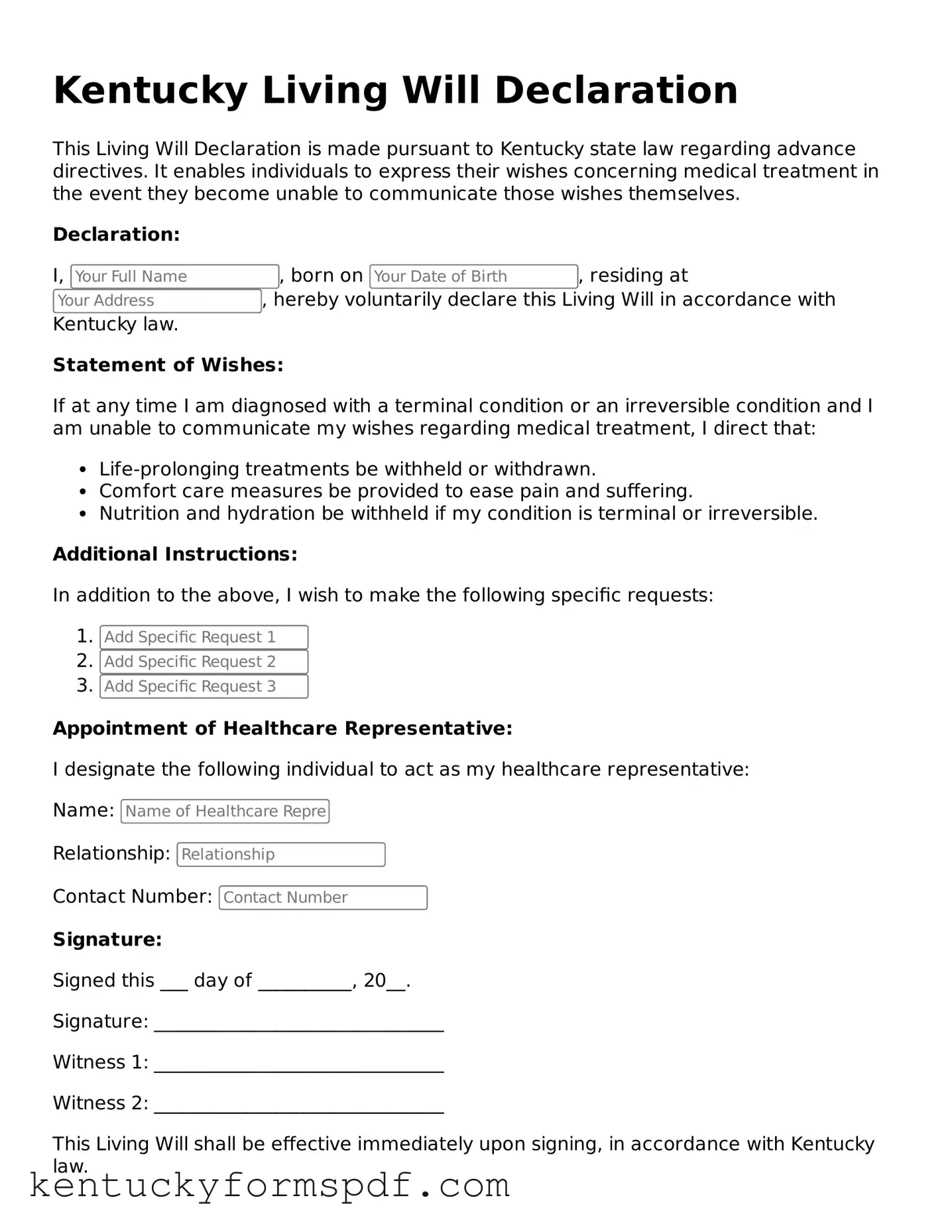What is a Kentucky Living Will?
A Kentucky Living Will is a legal document that allows individuals to express their wishes regarding medical treatment in the event that they become unable to communicate their preferences. It specifically addresses situations where a person is terminally ill or in a persistent vegetative state. This document helps ensure that your healthcare decisions align with your values and beliefs, providing peace of mind for both you and your loved ones.
Who can create a Living Will in Kentucky?
Any adult who is at least 18 years old and of sound mind can create a Living Will in Kentucky. This means you should understand the nature and consequences of the document you are signing. It’s important to reflect on your healthcare preferences and discuss them with your family and healthcare providers before drafting your Living Will.
What should be included in a Kentucky Living Will?
Your Living Will should clearly outline your preferences regarding life-sustaining treatments, such as resuscitation, mechanical ventilation, and feeding tubes. You may also want to include specific instructions about pain management and comfort care. Additionally, it can be helpful to name a healthcare proxy, someone who can make decisions on your behalf if you are unable to do so.
How do I create a Living Will in Kentucky?
Creating a Living Will in Kentucky involves filling out a specific form that complies with state laws. You can find this form through healthcare providers, legal aid organizations, or online resources. After completing the form, it must be signed in the presence of two witnesses or a notary public to be considered valid. Make sure to keep copies of the document in accessible locations and share them with your healthcare providers and family members.
Can I change or revoke my Living Will?
Yes, you can change or revoke your Living Will at any time, as long as you are still mentally competent. To revoke your Living Will, you can destroy the document, inform your healthcare providers of your decision, or create a new Living Will that explicitly states your updated wishes. It’s essential to communicate any changes to your family and healthcare team to avoid confusion in the future.
Is a Living Will the same as a Power of Attorney?
No, a Living Will and a Power of Attorney are different documents. A Living Will focuses specifically on your healthcare preferences in the event of a terminal condition or incapacity. In contrast, a Power of Attorney allows you to designate someone to make financial or legal decisions on your behalf. While both documents are important for planning your future, they serve different purposes.
What happens if I don’t have a Living Will?
If you do not have a Living Will, medical professionals will typically follow standard procedures to prolong life, which may not align with your personal wishes. This can lead to difficult decisions for your family during a stressful time. Having a Living Will in place ensures that your healthcare preferences are respected and can alleviate the burden on your loved ones when tough choices need to be made.

